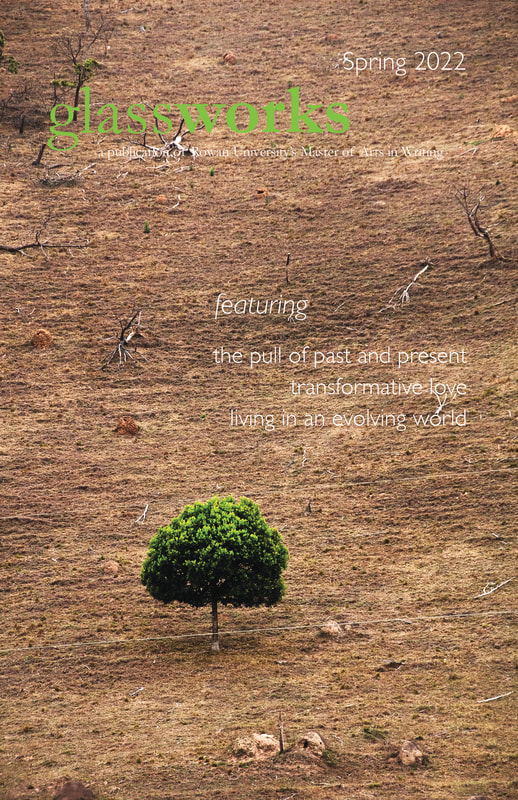|
lookingglass
Through the "Looking Glass," readers are invited to dig deeper into our issues as contributors share reflections on their work. Specifically, "Looking Glass" provides a sort of parlor where authors and artists reveal the genesis of their pieces, as well as provide meta-discursive insight into their textual and visual creative works. Issue 24 Reflections
Read on for reflections by select authors and artists
on the genesis and craft of their pieces in Glassworks and then read the full issue online! |
Jessica de Koninck
"Aubade, Winter"
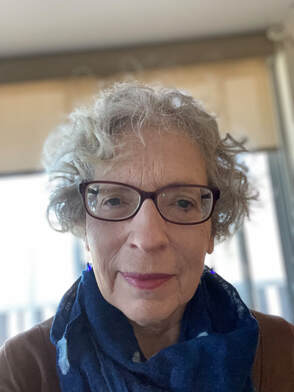
I can neither paint nor draw, a matter of much disappointment to me, but I often like to think of my poems as paintings in verse. Particularly in a short lyric poem, it is important to me that the reader be able to visualize the scene.
Many of my poems tend towards the sad or dark, and winter is the darkest and dreariest time of year. Not this poem. This poem focuses on a crisp, bright winter day. An aubade is a morning love poem. The speaker is in love with morning and with winter. Some lucky days are like that.
There is also a “you” in the poem. Is the speaker talking to herself, a lover, the reader? That’s left to the reader to decide. It may be all three. The poem, a very loosely structured sonnet, in fourteen lines with a turn in the last two lines, invites the reader to come in, or rather, invites the reader to come outside. What the “something” is that will be found outside is left to the imagination.
Many of my poems tend towards the sad or dark, and winter is the darkest and dreariest time of year. Not this poem. This poem focuses on a crisp, bright winter day. An aubade is a morning love poem. The speaker is in love with morning and with winter. Some lucky days are like that.
There is also a “you” in the poem. Is the speaker talking to herself, a lover, the reader? That’s left to the reader to decide. It may be all three. The poem, a very loosely structured sonnet, in fourteen lines with a turn in the last two lines, invites the reader to come in, or rather, invites the reader to come outside. What the “something” is that will be found outside is left to the imagination.
Cheryl Skory Suma
"I Lay Amongst the Stones"
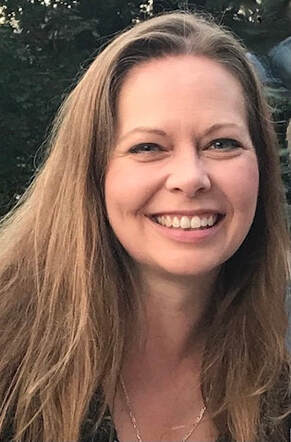
My piece focuses on the emotional aftermath of a sexual assault. As I state at the onset of the essay, the experience buried me whole, an avalanche tumbling over and through me until I became lost beneath the wreckage. When I began working on this creative nonfiction piece, I wanted to capture the feeling of that immense burden, of the weight that a past assault can leave behind. I am grateful that “I Lay Amongst the Stones” has found a home in Glassworks Magazine. Sexual assault victims will carry that weight forever, but as I and so many other survivors have discovered, sharing your story can sometimes ease the pain.
This piece was a long time in the making. Sexual assault and abuse were not topics my generation spoke about openly. Raised long before the #MeToo movement, it has taken some of us a little longer than it should have to find our voices, myself included. After completing three different creative nonfiction pieces regarding my past experiences, I realized I needed to let the work go as part of my recovery process. The story would never be told if it never left my laptop.
I was fortunate to receive encouraging responses from the first few journals I submitted to, along with generous feedback that helped me reshape and tighten the pieces, including moving sections between the works, resulting in more cohesive themes. I am pleased with the resulting three creative nonfiction essays and have moved on to other, happier tales. Writing about past assault pulled deep on past trauma, but I believe such stories need to be told, and I am honored that two of the three pieces have already found a safe place to land. I know the final piece will find her resting place soon. My wish for other sexual assault survivors who decide to share their stories is that they will also find healing through the process, or at the very least, feel a little less alone when reading pieces such as mine.
This piece was a long time in the making. Sexual assault and abuse were not topics my generation spoke about openly. Raised long before the #MeToo movement, it has taken some of us a little longer than it should have to find our voices, myself included. After completing three different creative nonfiction pieces regarding my past experiences, I realized I needed to let the work go as part of my recovery process. The story would never be told if it never left my laptop.
I was fortunate to receive encouraging responses from the first few journals I submitted to, along with generous feedback that helped me reshape and tighten the pieces, including moving sections between the works, resulting in more cohesive themes. I am pleased with the resulting three creative nonfiction essays and have moved on to other, happier tales. Writing about past assault pulled deep on past trauma, but I believe such stories need to be told, and I am honored that two of the three pieces have already found a safe place to land. I know the final piece will find her resting place soon. My wish for other sexual assault survivors who decide to share their stories is that they will also find healing through the process, or at the very least, feel a little less alone when reading pieces such as mine.
Toti O'Brien
"Almendras"
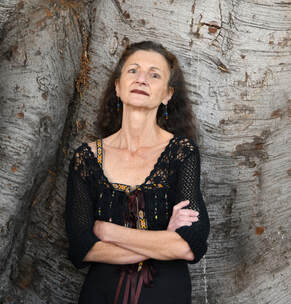
"Almendras" is a reflection on masturbation as a natural process of discovery, a path walked by the child—often—at a very early age. The connection between the almond and the vagina is the starting point for a tiny cluster of associations tying the acknowledgment of one’s own genitalia to beauty, freshness, and the joy of deciphering.
It is a fragile joy, soon tainted with taboo.
I believe the poem is conscious of the fragility. Almond trees are imprudent bloomers in Sicily, the place of my origins, often flowering at the very beginning of February. Canopies are suddenly wrapped in bright, candid petals that are as magnificent as fugitive.
The poem is conscious as well of the taboo, which imperceptibly and yet unavoidably infiltrates the wholesomeness of pleasure. It is the bitter almond that grows on every tree and quietly, unwillingly, slips among the others. It is the intuition of needed secrecy. It is what seamlessly morphs newborn pleasure into nameless nostalgia.
It is a fragile joy, soon tainted with taboo.
I believe the poem is conscious of the fragility. Almond trees are imprudent bloomers in Sicily, the place of my origins, often flowering at the very beginning of February. Canopies are suddenly wrapped in bright, candid petals that are as magnificent as fugitive.
The poem is conscious as well of the taboo, which imperceptibly and yet unavoidably infiltrates the wholesomeness of pleasure. It is the bitter almond that grows on every tree and quietly, unwillingly, slips among the others. It is the intuition of needed secrecy. It is what seamlessly morphs newborn pleasure into nameless nostalgia.
Jared Beloff
"Just Another Tuesday in the Anthropocene"
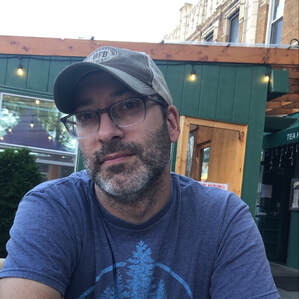
“Just Another Tuesday in the Anthropocene” is a part of a larger body of work I have been writing for the past year concerning the surreality of our engagement with climate change. Most of the poems in this collection are highly speculative, a projection into the future from where we are right now. When depict the present, as I do in this poem, I try to call attention to the way our norms are often absurd in the face of loss.
Every summer we visit Jersey shore towns like Brigantine, Avalon and Stone Harbor so when I started to think about climate change and the everyday ways we ignore what is shifting in front of us, the fine, pumped sand used to keep the beaches in Stone Harbor from eroding came to mind. In this case, for both the speaker and the town, preventing change is about maintaining some sort of imagined normal, a childlike ignorance toward what approaches with the tide.
Every summer we visit Jersey shore towns like Brigantine, Avalon and Stone Harbor so when I started to think about climate change and the everyday ways we ignore what is shifting in front of us, the fine, pumped sand used to keep the beaches in Stone Harbor from eroding came to mind. In this case, for both the speaker and the town, preventing change is about maintaining some sort of imagined normal, a childlike ignorance toward what approaches with the tide.

